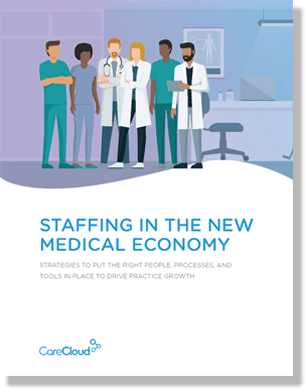The term “prior authorization” on its own elicits feelings about security and privacy, as it should. When dealing with various technologies, authorization — authentication is a modern form of it — might require someone to get approval before accessing accounts or content.
In the medical world, especially when dealing with insurance providers, the term or concept is a bit different. It is essentially a requirement put in place by insurance providers to help them minimize both problems and costs with their constituents’ health care.
It dictates that doctors and physicians get approval from an insurance provider before providing care. Prior authorizations can be required for a vast variety of different health services and are not limited to prescription drugs or operations. Failure to do so might mean the insurance provider will deny or refuse to pay for medication and operations — shifting the burdens to the patient directly.
Without approval, you could be stuck footing the bill.
Of course, alongside the negative proponents of this process, there are some valid reasons why it exists.
What Is Prior Authorization Meant For?
Health insurance providers use prior authorization to ensure you are getting the right health care, and that physicians are following the preferred method for treatment.
For example, if a service or drug the doctor is requesting is reserved expressly for medical use, the provider wants to ensure you absolutely need it. Is it being chosen as the last resort and ultimate treatment, or are there are other, better options available?
Other reasons include:
- The service or treatment is outdated
- The medication/equipment is not the most economical treatment option
- Duplicate treatments or operations are being done, such as a CT scan or X-ray that’s carried out multiple times unnecessarily
- The ongoing treatment is not helping a problem, such as therapy
Ultimately, it’s meant to be a suitable form of rationing that ensures only the people who need certain medications, treatments and operations are getting the appropriate care. It’s especially critical when dealing with limited resources, such as medication that’s low on supply or hard to find.
The Dark Side of Prior Authorization
When used appropriately, prior authorization can help foster strong communication between health care and insurance providers, particularly when it comes to the value of a patient’s care plan. It also benefits patients by ensuring they are not responsible for poorly chosen medication, treatments or operations.
That said, it doesn’t always work out how it’s supposed to. There are cases where insurance providers use the process as a means to restrict or deny certain treatments and medications. Consumer Affairs has a small guide about what happens when things go wrong, and it’s not pretty.
Security and Privacy Concerns
Furthermore, there are some security and privacy concerns regarding what is being communicated to insurance providers. In some cases, it may be necessary to acquire approval for a particular treatment or medication, but that doesn’t mean the insurance provider deserves all the gritty details.
How can you be sure the information shared with insurance providers is secure, private and suitably stored? This isn’t born of paranoia, either — cyber attacks and data breaches happen even to insurance providers.
One employee error exposed Blue Cross patient data for up to three months. A phishing attack captured 38,000 patient records at Legacy Health in Portland, Oregon. There have been dozens — if not hundreds — of other attacks that occurred in recent times.
Unfortunately, there is no answer or solution to some of these problems. However, they do raise concerns as to how health care and insurance providers are handling such communications.
Prior authorization is a necessary process that exists to ensure physicians and health care providers are choosing the appropriate treatments.
We cannot live without it, and the healthcare industry cannot function without the system in place. However, that doesn’t mean we should be blind to its faults.
Sources:
- https://www.verywellhealth.com/how-health-care-rationing-in-the-us-affects-even-you-1738482
- https://www.consumeraffairs.com/news/my-pharmacist-says-he-needs-prior-authorization-whats-that-all-about-040615.html
- https://www.healthcareitnews.com/news/employee-error-exposed-data-16000-blue-cross-patients-online-3-months
- https://www.hipaajournal.com/phishing-attack-legacy-health/
- https://digitalguardian.com/blog/top-10-biggest-healthcare-data-breaches-all-time



